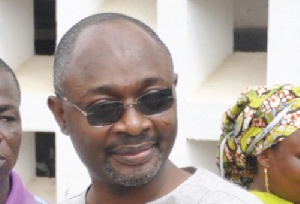Mr Alfred Agbesi Woyome, a financier of the National Democratic Congress party who has been directed by the Supreme Court to refund some over 51 million cedis paid to him wrongly by the state has asked the African Court of Human Right and Peoples’ Rights to uphold his rights under the African Union Charter.
Mr Woyome is alleging that his human rights was being violated by the state in trying to enforce the judgement of the Supreme Court by attempts to get him to pay back the money.
The Supreme Court had earlier ruled that until the country’s parliament ratify the charter establishing the court its decisions cannot be enforced in the country.
Mr Godfred Yeboah Dame, Deputy Attorney General, Mrs Dorothy Afriyie-Ansah, Chief State Attorney, Mrs Stella Badu, Chief State Attorney, and Ms Nabeela Wahab, Senior State Attorney represented the country.
A document made available to the Ghana News Agency in Accra indicates, that Mr Kwaku Osafo Buabeng, Ms Vivienne Tetteh, and Mr Raynolds Twumasi Junior were representing Mr Woyome.
The document signed by Dr Robert Eno, the African Court Registrar obtained by GNA, said in the application Mr Woyome is alleging to have provided financial engineering services to Ghana to secure funds for the rehabilitation of the Accra and Kumasi Sports Stadia for the Confederation of the African Cup of Nations Tournament held 2008.
The Applicant is also alleging that, by not respecting the terms of the agreement, Ghana violated his rights provided under the Charter namely, enjoyment of rights and freedoms recognised in the Charter without distinction (Article two of the Charter).
The applicant is also claiming that equality before the law and equal protection of the law as stated in Article three of the Charter and right to fair trial in Article seven of the Charter were not upheld.
The Court is composed of eleven Judges who are nationals of Member States of the African Union elected in their individual capacities.
The Court meets four times a year in Ordinary Sessions and may hold Extra-Ordinary Sessions if need be.
General News of Wednesday, 9 May 2018
Source: ghananewsagency.org













